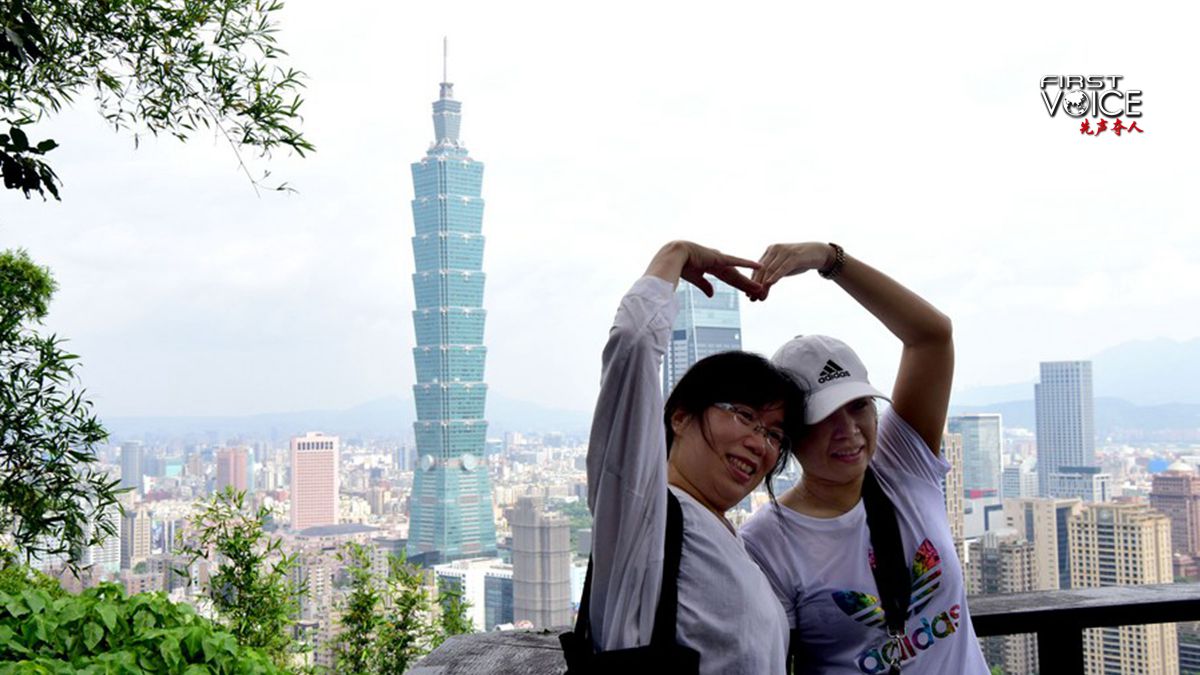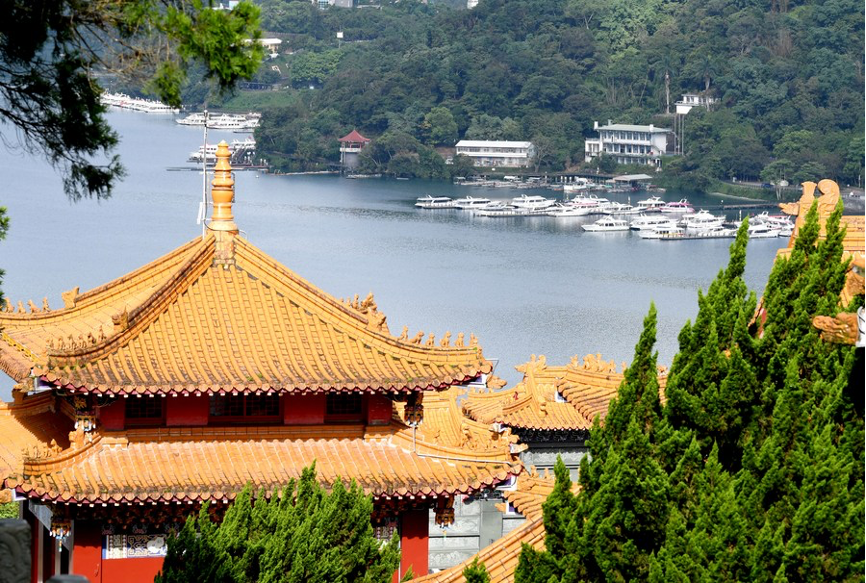
Tourists pose for a photo at Xiangshan Mountain in Taipei, Southeast China's Taiwan, July 21, 2019. [Photo/Xinhua]
Editor's note: CGTN's First Voice provides instant commentary on breaking stories. The column clarifies emerging issues and better defines the news agenda, offering a Chinese perspective on the latest global events.
Full of hostility and provocation, Lai Ching-te's inaugural speech as the new leader of China's Taiwan region fully demonstrates his true intention of sacrificing regional peace and prosperity for "Taiwan independence." Blatantly touting the "two states" theory, Lai is a traitor to mainstream public opinion on the island, hijacking the well-being of Taiwan people for his own desire for power.
War vs. peace
The Chinese government has reiterated its determination for reunification. Regardless of changes in the situation on the island or who holds power, the fact that both sides of the Strait belong to one China cannot change.
However, Lai from the very beginning of his tenure has been actively advocating for "Taiwan independence," posing a serious challenge to the one-China principle. Lai's speech – under the guise of "building a democratic, peaceful, and prosperous new Taiwan" – is in essence a fresh attempt to stoke confrontation between the two sides of the Taiwan Strait.
China's determination for reunification means it will take all necessary measures – including military ones – to safeguard its sovereignty and territorial integration. In this context, Lai's repeated collusion with external forces for "Taiwan independence" has tremendously destroyed the prospect of peaceful reunification, pushing the region towards a real armed conflict.
Clearly, this is not what the people of Taiwan are ready to accept.
Fears of war among Taiwan society have, to some extent, contributed to its plunging birth rate. In 2023, the number of births on the island hit a record low of 135,571 – the fourth consecutive year with fewer births than deaths. Taiwan's total fertility rate – 0.87 children per woman – ranked the lowest across the world in 2022. According to government estimates, Taiwan's birth rate is set to become the world's lowest by 2035.
"The figures reflect the public's fear (of a potential war across the Strait)," said Ma Ying-jeou, former chairman of the Chinese Kuomintang party, adding that young people are more willing to give birth if they are confident of the peace prospects across the Taiwan Strait.

Scenery of the scenic spot of Riyue Tan, or the Sun Moon Lake, in Nantou County, southeast China's Taiwan. [Photo/Xinhua]
Development vs. regression
Lai's dangerous pursuit of "Taiwan independence" has also put the island's economic prospects under a shadow.
Once a high-growth economy of the "Four Asian Tigers," Taiwan has seen continued signs of economic sluggishness over the past few years. Facing stagnant salaries and soaring housing prices, the bread-and-butter issues have become the major concerns of local people. However, the DPP's repeated provocations on the Taiwan question during its eight-year ruling have tremendously jeopardized the island's economic ties with the mainland. Lai's speech, which was full of wrong understanding of history and the legal status of Taiwan, has added fuel to the already-tense economic ties with the mainland.
As an outward economy, Taiwan relies heavily on international trade. For years, it has maintained a huge trade surplus with the mainland, which is an important source of momentum for the island's industrial transformation. Admittedly, Taiwan under DPP rule is diversifying away from the mainland, with the U.S. replacing the mainland as the top destination for the island's exports in the first quarter of this year. But this cannot conceal the mainland's economic significance to Taiwan.
Despite its mainland-bound export drop of 15.4 percent year-on-year to $199.35 billion in 2023, Taiwan still maintained a trade surplus of $130.86 billion with the mainland, according to Chinese mainland customs. By comparison, Taiwan's trade surplus with the U.S. stood at $35.54 billion the same year.
In this context, the DPP authority should cherish – instead of deteriorate – ties with the mainland if it is sincere in boosting the island's economy. However, talking superficially about "dialogues" to "improve" cross-Strait relations, the DPP has even thwarted mainland residents to travel to the island for tourism. Lai's provocative rhetoric on the Taiwan question will further drag cross-Strait ties into a downward spiral at the cost of Taiwan's development and prosperity.
It is peace, not war; development, not regression; interaction, not separation; cooperation, not confrontation that represent the prevailing public sentiments in Taiwan society. But Lai, inciting "anti-China" sentiments and pursuing "independence," is pushing Taiwan into a dangerous situation of war, regression, separation and confrontation. Taiwan's new leader is instead a traitor to his people.

 中文
中文



